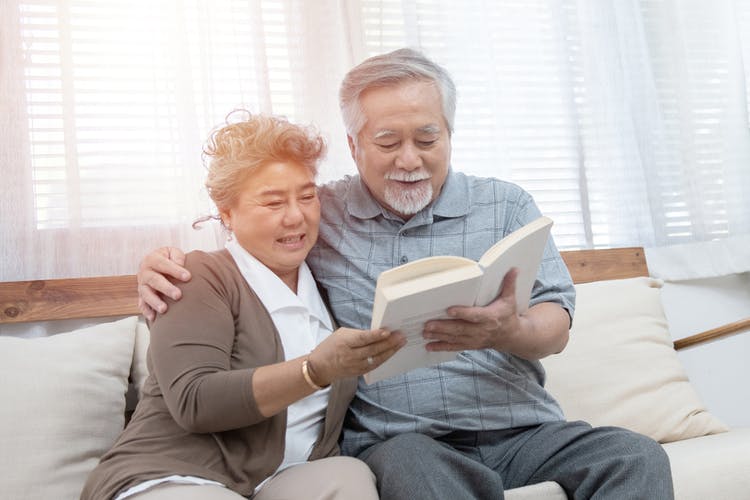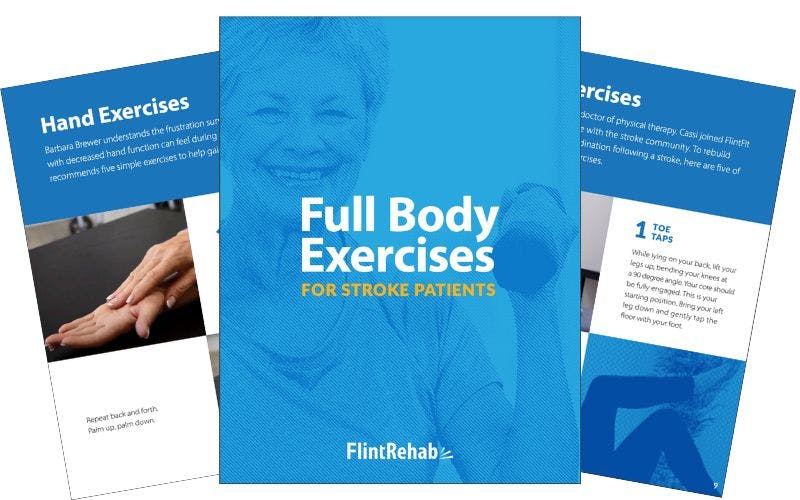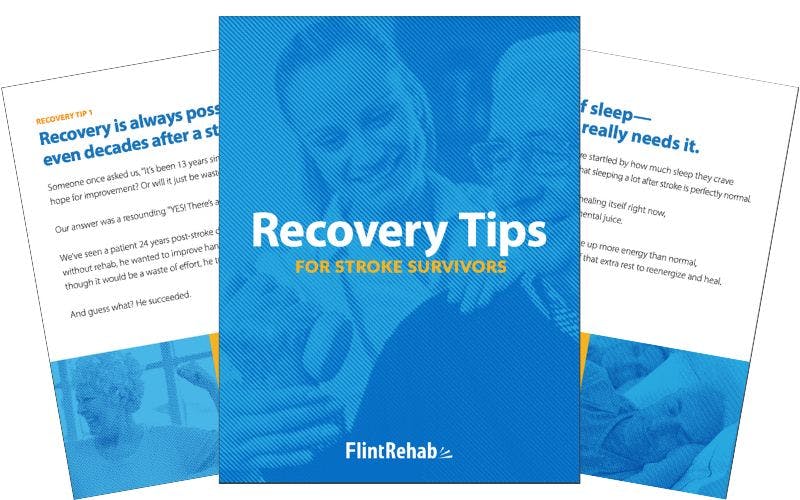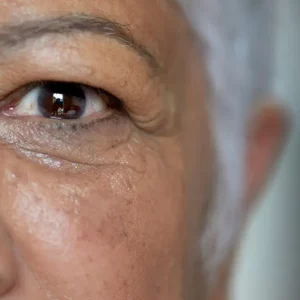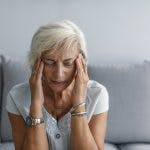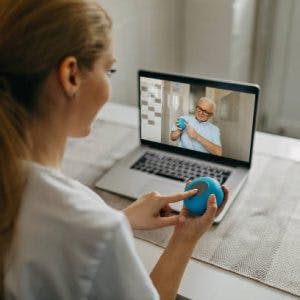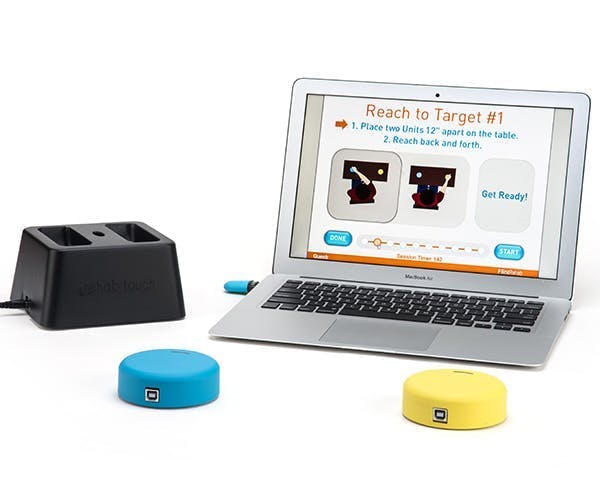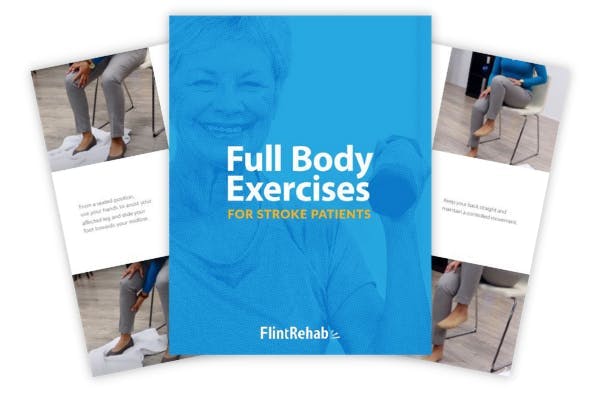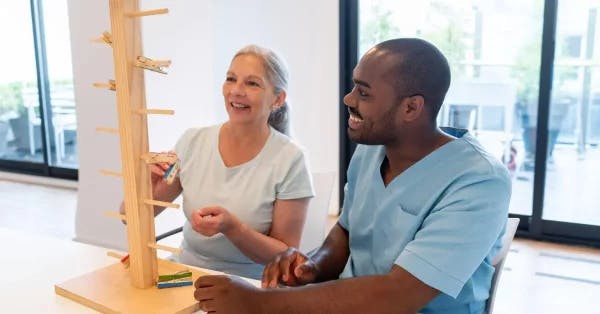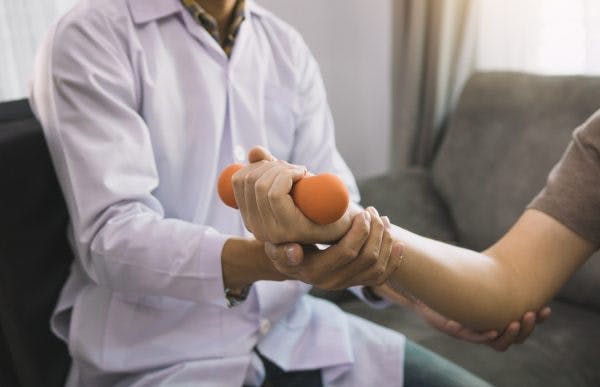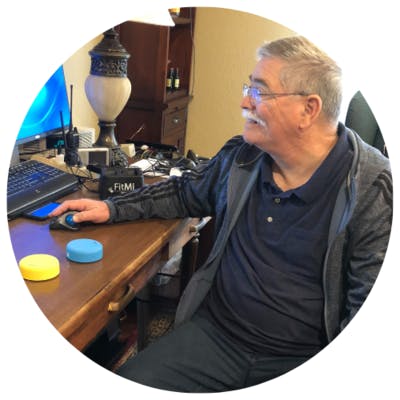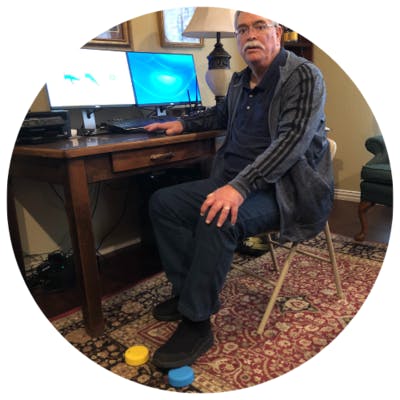Looking for helpful, motivating books on stroke recovery? This list contains inspiration for both survivors and caregivers alike. Updated yearly, this article includes many of the most recent stroke recovery books, while also keeping several of the best books from years past in the roundup. Whether looking for technical advice on stroke recovery or motivational guidance to manage life after stroke, there’s a book on this list for everyone.
The Best Stroke Recovery Books
Every stroke is different, and every recovery is unique. This means that recovery goals also fluctuate among survivors. Some may be looking for techniques to improve their mobility or cognition, while others may simply be seeking ways to stay motivated on their recovery journey.
Books on stroke recovery may cover these topics and many more. From exercise recommendations and practical advice to caregiver tips and uplifting stories of recovery, books can become a source of comfort, answers, and inspiration for stroke survivors and their families.
The following books provide evidence-based recommendations and real-life advice from brain scientists, therapists, and other stroke survivors. Both technical guides and memoirs are included for a robust reading experience.
Here are some of the best books on stroke recovery:
1. “My Stroke of Insight” by Jill Bolte Taylor
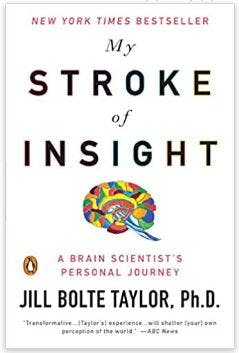
Year after year, My Stroke of Insight takes the #1 spot on Flint Rehab’s list of the best stroke recovery books. The author, Jill Bolte Taylor, delivered one of the most-watched TedTalks of all time about her life-changing experience surviving a massive stroke — as a brain scientist no less!
My Stroke of Insight provides an insider’s perspective on stroke recovery, including helpful tips on how to relate to stroke survivors. Full of compassion, this stroke recovery book can help both survivors and caregivers find grace on the road to recovery.
See My Stroke of Insight on Amazon »
2. “Stronger After Stroke” by Peter Levine
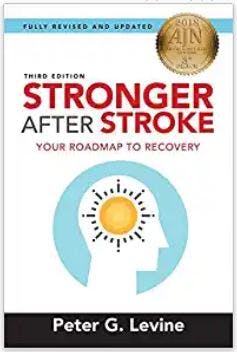
Stronger After Stroke is arguably one of the best technical guides on stroke recovery. Although it is a dense and heavy read, every survivor and caregiver should have a copy.
By highlighting the best ways to activate neuroplasticity, the process through which the brain can heal itself after stroke, Stronger After Stroke can help readers learn about some of the most effective stroke recovery techniques. It may even answer questions that survivors didn’t even realize that they had about stroke rehabilitation.
See Stronger After Stroke on Amazon »
3. “Healing & Happiness After Stroke” by Kari Dahlgren
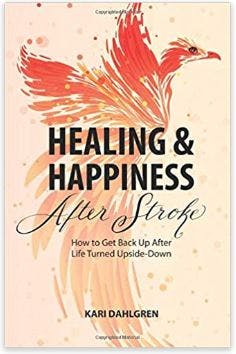
While the previous book focuses on the technical side of stroke recovery, Healing & Happiness After Stroke focuses on the emotional side of recovery. With an emphasis on positivity, this book can help survivors find inspiration and improve their overall sense of wellbeing.
This book can help survivors who feel stuck or struggle to find motivation to rewire the brain for happiness. It focuses on rarely-talked-about topics like shame and loss of self-esteem to help survivors find both healing and happiness, just as the title suggests.
See Healing and Happiness After Stroke on Amazon »
4. “Recovering After A Stroke” by Dr. Benjamin Sterling
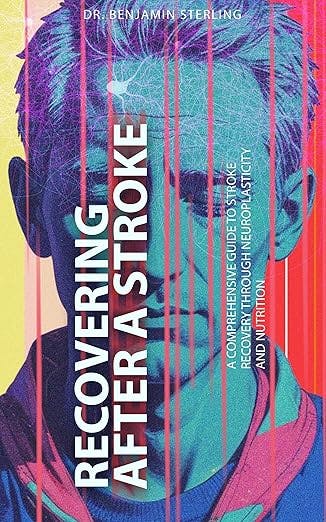
This comprehensive guide to stroke recovery published in 2024 is full of current recommendations for how to achieve an optimal recovery. With a focus on neuroplasticity, Recovering After A Stroke highlights evidence-based rehabilitation strategies and recommended lifestyle modifications, with several therapeutic exercises and activities included.
Furthermore, this book provides an in-depth explanation of the importance of a healthy diet for stroke recovery. Sample diets with an emphasis on consuming brain-boosting foods are also included. This book is perfect for individuals looking for a well-rounded guide to stroke recovery.
See Recovering After A Stroke on Amazon »
5. “The Brain that Changes Itself” by Norman Doidge
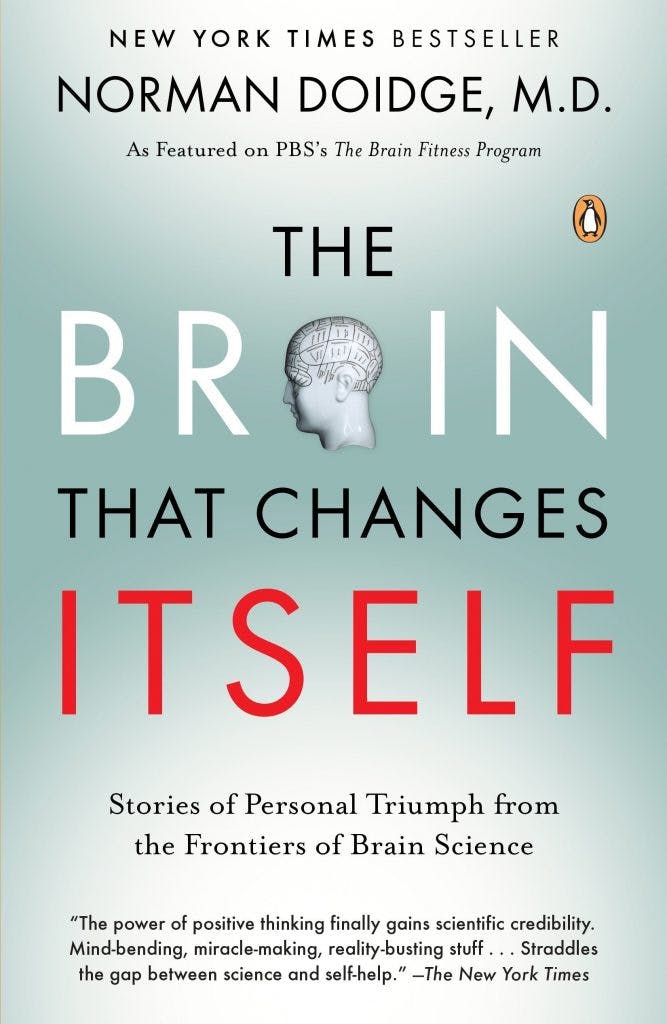
While this book does not focus specifically on stroke recovery, it does provide a detailed description of the amazing way that the brain is able to adapt and change through neuroplasticity. Neuroplasticity after stroke is arguably the most important mechanism for recovery. It is the process that the brain uses to create and strengthen neural connections related to repetitively practiced tasks.
This is why The Brain That Changes Itself is considered one of the best books on stroke recovery. Not only does it explain neuroplasticity in depth, but survivors may also be inspired by real life examples, such as the woman who was born with half a brain that rewired itself to work as a whole!
See The Brain that Changes Itself on Amazon »
6. “Whole Brain Living” by Jill Bolte Taylor
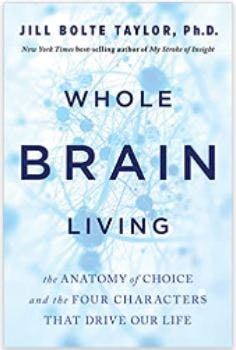
In 2021, Jill Bolte Taylor published another book called Whole Brain Living. This book challenges the traditional school of thought that labels the left brain as logical and the right brain as emotional.
Although this book is less stroke-specific than her first book, it contains tools that can help improve the way individuals think and feel. It also encourages readers to learn about how different parts of the brain work, both separately and collectively, and how to best use this knowledge to approach daily situations.
See Whole Brain Living on Amazon »
7. “In the Face of Catastrophe” by Jennifer Rose Goldman and Caryn Meg Hirshleifer
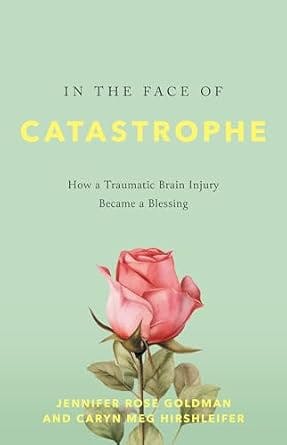
This 2024 memoir follows the life Jenn, who experienced a life-changing stroke at thirty years old. Written as a series of journal entries, In the Face of Catastrophe highlights the thoughts and feelings of Jenn and her family members as they grapple with new realities after stroke.
Focused on the importance of family support, self-care, and intentionality, this book can serve as a source of comfort and encourage survivors to lean on their village throughout recovery. Individuals will laugh, cry, and experience hope alongside Jenn and her family, while being reminded to make the most of every moment.
See In the Face of Catastrophe on Amazon »
8. “The Diving Bell and the Butterfly” by Jean-Dominique Bauby
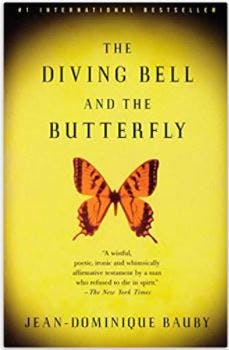
This captivating memoir provides a first-hand account of a father’s experience with locked-in syndrome. Most often caused by a brain stem stroke, locked-in syndrome is a rare condition where the entire body becomes paralyzed except for the eyes.
Stroke survivor Jean-Dominique Bauby wrote this memoir through his ability to blink just his left eye to select each letter as the alphabet was recited to him slowly, over and over again. That in itself is inspiring, and the content in his book is even more so.
In these pages, Bauby will astonish readers with his appreciation for life, even as he lives with locked-in syndrome, fully paralyzed and fed only intravenously. This book easily remains in our roundup year after year because Bauby’s story is such a powerful inspiration.
See The Diving Bell and the Butterfly on Amazon »
9. “Healing the Broken Brain” by Dr. Mike Dow and David Dow
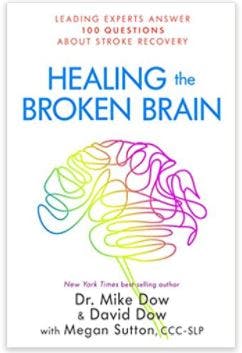
This stroke recovery book was co-authored by a psychotherapist and a stroke survivor, and it also contains contributions from a speech-language pathologist. Needless to say, it provides a robust, holistic approach to recovery.
Healing the Broken Brain contains a powerful intersection between hope and science. This stroke recovery book is a great read for survivors and caregivers alike. Survivors who struggle with language difficulties after stroke will find this book especially helpful.
See Healing the Broken Brain on Amazon »
10. “Identity Theft: Rediscovering Ourselves After Stroke” by Debra Meyerson

A stroke can challenge a survivor’s sense of identity, especially if it causes a sudden shift in work skills, relationships, and hobbies. For example, if a talented musician lost hand movement after a stroke and was unable to play their instrument, their sense of identity may be shaken.
Identity Theft is a stroke recovery book that dives deep into the process of rediscovering the sense of self after stroke. The author, Debra, provides personal wisdom from her own journey after transitioning from a Stanford professor deeply identified with her career to being completely unable to speak after her stroke.
See Identify Theft on Amazon »
11. “Tell Me Everything You Don’t Remember” by Christine Lee
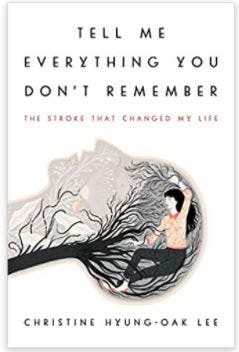
At the age of 33, Christine suffered a left thalamic stroke which severely damaged her memory. Doctors told her to notate everything she did with timestamps in her journal, which would soon become Christine’s working memory.
Christine struggled with true invisible illness. Because she did not show any physical effects of her stroke, many of her friends unknowingly made unkind comments, such as, “but you look normal!” or “I wish I had a stroke as an excuse for my short-term memory issues!” Only other stroke survivors can truly relate to the sting of these comments, and Tell Me Everything You Don’t Remember can help survivors find meaning and inspiration on their stroke recovery journey.
See Tell Me Everything You Don’t Remember on Amazon »
12. “Hope After Stroke” by Tsgoyna Tanzman
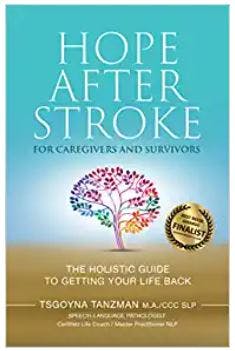
Written by a speech-language pathologist and life coach with more than 25 years of experience working with stroke survivors, Hope After Stroke provides a holistic overview of the entire stroke recovery process. It covers everything from speech recovery to nutrition to candid answers on awkward topics, such as sexual issues post-stroke. This is one of the best books on stroke recovery for those looking for a holistic viewpoint.
See Hope After Stroke on Amazon »
13. “Finding Yourself After Stroke” by Letisha Living
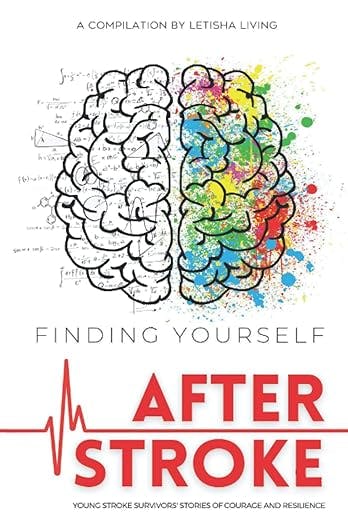
Compiled by Letisha Living, who is both a stroke survivor and a recovery coach, Finding Yourself After Stroke includes the stories of 26 young stroke survivors. This book allows readers to see the stroke recovery journey through the eyes of each survivor, from the initial stages of stroke through the challenges and successes experienced during the recovery process.
With the many different experiences captured in this compilation, stroke survivors will likely find a sense of connection within these pages. This book would be great read for survivors and family members looking for inspiration and hope as they navigate life after stroke.
See Finding Yourself After Stroke on Amazon »
14. “The Caregiver’s Guide to Stroke Recovery” by Lucille Jorgensen, RN
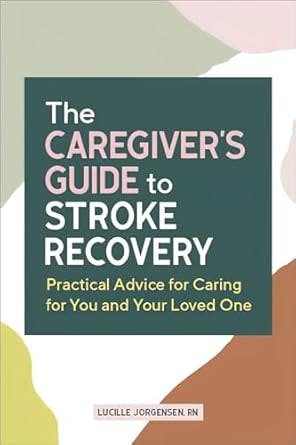
Written by Lucille Jorgensen, a nurse who has a passion for working with stroke survivors and their families, The Caregiver’s Guide to Stroke Recovery is designed to encourage and equip caregivers of stroke survivors. While practical tips for assisting stroke survivors are included throughout this guide, there is also an emphasis on developing a good balance between caregiving and self-care.
This book covers topics such as how to identify a stroke, effective rehabilitation methods, medications, stroke prevention, and advocacy. It also outlines practical ways to encourage the health and wellness of caregivers and survivors alike, making this book is a must-read for caregivers as they learn how to best support their loved one.
See The Caregiver’s Guide to Stroke Recovery on Amazon »
15. “Yoga Therapy for Stroke” by Arlene Schmid and Marieke Puymbroeck
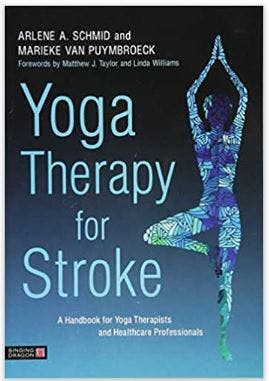
Yoga can be a beneficial stroke recovery treatment that improves balance and posture and while also relieving stress. As a stroke survivor, it is strongly recommended to practice with a yoga teacher that has experience working with other stroke survivors. This is because modifications may be necessary to promote participation and prevent further injury.
While this book is intended to assist yoga teachers and therapists, it can also be a great read for survivors who want to learn how to adapt their own yoga practice to their current abilities. It covers everything from adaptations to breath work and meditation. Of note, survivors should always check with their doctor and/or therapist before beginning any new at-home regimen to reduce the risk of injury.
See Yoga Therapy for Stroke on Amazon »
Bonus Workbooks
While different than the books listed above, workbooks can also hold a valuable place for survivors pursuing recovery. Below are a few of the best workbooks for stroke recovery.
- “Stroke Recovery Activity Book” by Guara Press. This workbook includes anagrams, word searches, visual discrimination activities, mazes, and much more to help stimulate the brain and encourage cognitive function.
- “The PTSD Workbook” by Mary Williams. Written by two psychologists and trauma experts, this book is designed to help individuals who experience PTSD, which affects approximately 25% of all stroke survivors.
- “Retrain Your Brain: Cognitive Behavioral Therapy in 7 Weeks” by Seth Gillihan. Leaning upon the power of neuroplasticity to rewire the brain and improve thought patterns, this book uses the principles of cognitive behavioral therapy to improve depression, anxiety, and other mental health conditions that are common among stroke survivors.
- “To Roots & To Rise” by Carole J. Starr. While not specific to stroke, this hybrid book/workbook aims to help individuals navigate the grief and loss that can occur after an injury to the brain.
These workbooks can be excellent resources for encouraging healing and recovery after stroke. Survivors should consider talking with their therapist or doctor for further recommendations within their areas of interest.
Building a Library of Stroke Recovery Books
On the road to recovery, books can help to empower survivors, providing them with as much information as possible to take control of their recovery. Memoirs offer powerful ways to feel understood by other survivors, and there are many stroke recovery books that touch on the physical side of recovery, too.
Exploring these stroke recovery books and workbooks can help survivors gain better insight into what they can do to empower their own recovery. For an easy starting point, consider checking out the free ebooks below containing Flint Rehab’s best exercises and stroke recovery tips in a beautifully illustrated PDF. Enjoy!

